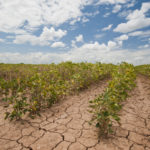 Serious games have proven effective at allowing participants to think through the various possibilities that may unfold in the future in a wide range of scenarios. A recent study from Swedish and Finnish researchers explores the use of gaming to help Nordic farmers better understand the implications of climate change, and how they can make smarter environmental decisions.
Serious games have proven effective at allowing participants to think through the various possibilities that may unfold in the future in a wide range of scenarios. A recent study from Swedish and Finnish researchers explores the use of gaming to help Nordic farmers better understand the implications of climate change, and how they can make smarter environmental decisions.
The researchers created an interactive game, called the Maladaptation Game, to help the farmers explore the possible negative impacts of their decisions. The researchers believe that the game proved useful in exploring both the challenges and benefits of various forms of farming to the climate.
Adaptation strategies
There are various adaptation strategies that can be used to help tackle climate change, such as improving drainage systems to allow the land to cope with increased precipitation levels. The opposite is maladaptation, which is when poor decisions are made, often for short-term financial reasons, that make the farm more vulnerable in the long-term.
The Maladaptation Game allows farmers to play out some of these decision making processes in a less pressured environment, allowing them to see how their choices may play out in the medium to long-term. The game was tested on a number of farmers from Sweden and Finland, with players presented with four key agricultural challenges, including precipitation and drought.
With each challenge, the players are asked to make a number of key strategic decisions based upon the options provided. As the game plays out, they’re given updates on progress, with a summary at the end highlighting the potential negative outcomes from their choices.
“While we observed that the conceptual thinking of the game sometimes clashes with the players’ everyday experiences and practice, we believe gaming may function as an eye-opener to new ways of thinking,” the researchers explain.
The game was designed to incorporate the latest thinking in both sharing and decision making, as the researchers believe this reflects how farmers act in real-life, both on their own farm and with their peer group as they share knowledge and insights among themselves.
“Serious games have great potential of how to address complex environmental issues. Used as a communication strategy, they illustrate, visualise and communicate research findings,” they conclude.